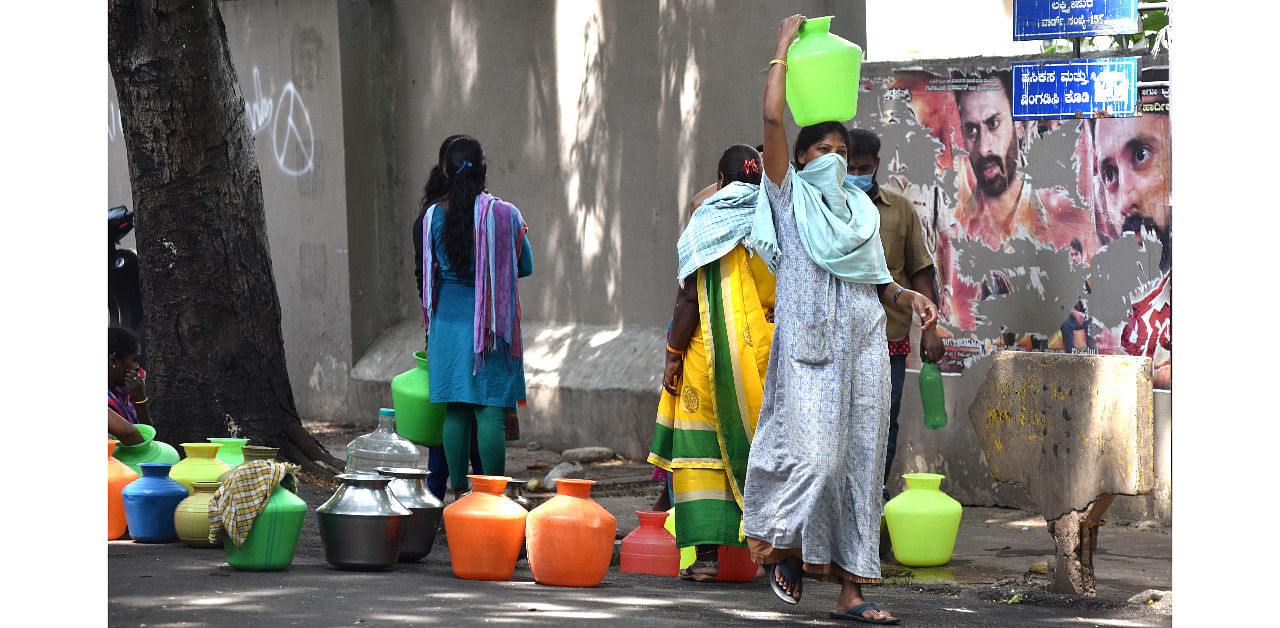
In what comes as a matter of extreme concern, 30 Indian cities figure in the list of 100 cities across the globe that face dramatically increased water risks – unless urgent action is taken to mitigate and adapt to climate change.
Bengaluru, Hubli-Dharwad also figure in the list of 30, according to the data by the WWF.
Almost half the cities are in China, with other hotspots in South Asia, Middle East, South America, and Africa.
According to the scenarios in the WWF Water Risk Filter, the 100 cities that are expected to suffer the greatest rise in water risk by 2050 are home to at least 350 million people as well as nationally and globally important economies. Globally, populations in areas of high-water risk could rise from 17% in 2020 to 51% by 2050.
The list includes cities such as Beijing, Jakarta, Johannesburg, Istanbul, Hong Kong, Mecca and Rio de Janeiro.
The report names 30 Indian cities including Jaipur, Indore, Amritsar, Pune, Srinagar, Kolkata, Bangalore, Mumbai, Kozhikode, Visakhapatnam, Jabalpur, Nagpur, Dhanbad and Bhopal that have been identified as the urban conglomerations, which would face enhanced water risks in the next few decades.
“The water risk filter overall risk is a comprehensive risk layer composed of three risk types: physical (scarcity, flooding, quality, ecosystem services status), regulatory (enabling environment, institutions and governance, management instruments, infrastructure and finance), and reputational (cultural importance, biodiversity importance, media scrutiny, conflict),” Ariane Laporte-Bisquit, lead researcher of the WWF Water Risk Filter told DH.
Citing the examples of the revival of Bashettihalli wetland in Bengaluru and the Sirpur lake in Indore, the report pointed out that there were many such initiatives across the country that could be scaled up.
Dr. Sejal Worah, Programme Director, WWF India, said, “The future of India’s environment lies in its cities. As India rapidly urbanizes, cities will be at the forefront both for India’s growth and for sustainability. For cities to break away from the current vicious loop of flooding and water scarcity, nature-based solutions like restoration of urban watersheds and wetlands could offer solutions. This is our chance to re-evolve and re-imagine what the future of the cities could be.”
Alexis Morgan, WWF Global Water Stewardship Lead, added: “Cities across the world have paid a high price in recent years due to worsening water risks. From acute risks that have seen historic floods to chronic risks that have seen their taps running dry, the water challenges cities are facing are only going to increase in the coming decades because the impacts of climate change will primarily be felt through the water.”
The Smart Cities initiative in India could offer an integrated urban water management framework combining urban planning, ecosystem restoration and wetland conservation for building future-ready, water-smart and climate-resilient cities.
Urban watersheds and wetlands are critical for maintaining the water balance of a city, flood cushioning, micro-climate regulation and protecting its biodiversity. The future of our cities and sustainability lies in the efficiency in closing the loop by integrating water supply, demand management.
A WWF-India press statement said multi-stakeholder engagement and ownership involving local communities is key in creating and conserving sustainable water infrastructure and rejuvenating urban freshwater systems. There are many initiatives across the country that can be scaled up where multi-stakeholder groups have come together and revived wetlands such as Bashettihalli wetland in Bengaluru and the Sirpur Lake in Indore.
Urban planning and wetland conservation need to be integrated to ensure zero loss of freshwater systems in the urban areas.
While improving urban water infrastructure and cutting water consumption will help reduce water risks, Nature-based Solutions – such as restoring degraded watersheds, reconnecting rivers to their floodplains, and restoring or creating urban wetlands – are critical to avoiding the worst-case scenario and to safeguarding economies and human wellbeing. Public funds will be needed in some cases, but bankable water solutions also offer effective ways to invest in projects that can enhance the health of freshwater ecosystems, reduce water risk and generate returns.
